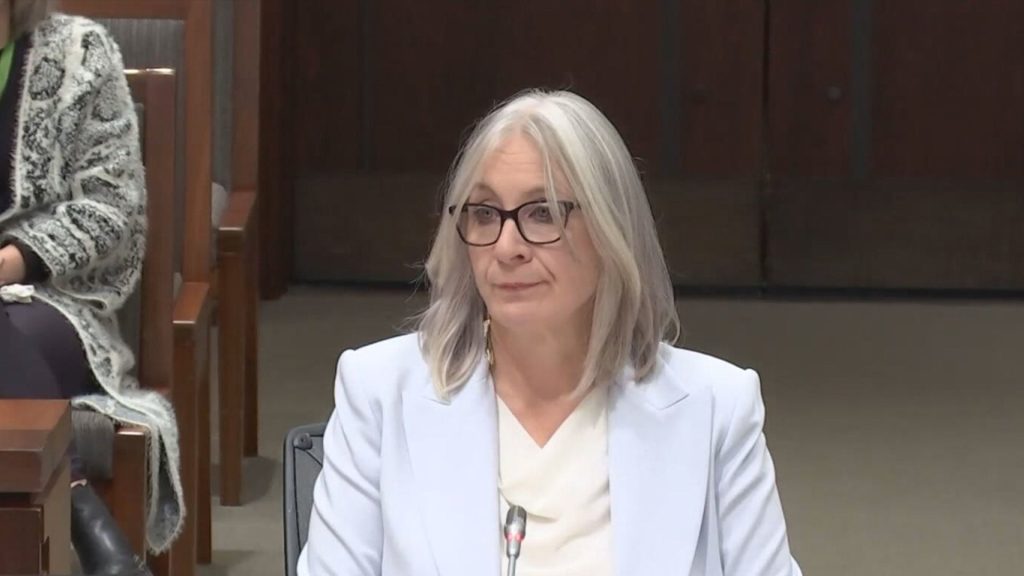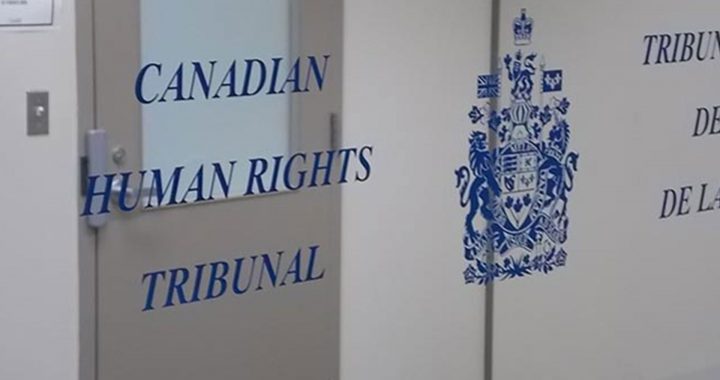
ISC Minister Patty Hajdu at the Parliamentary committee on Nov. 19.
Federal Indigenous Services Minister Patty Hajdu says the removal of 1,110 businesses from the Indigenous Business Directory, or IBD, was part of a regular audit.
“Every two years, the department audits the Indigeneity of the businesses, just because businesses transform quite a bit in between audits,” Hadju told a Parliamentary committee on Tuesday.
The directory provides the federal government with names of businesses they could consider using to meet its Indigenous procurement target, which states a minimum five per cent of the total value of government contracts should be held by Indigenous-owned businesses.
The news comes as Liberal MP and cabinet minister Randy Boissonnault (Edmonton Centre) was removed from cabinet following allegations of false claims of indigeneity.
“The Prime Minister and MP Randy Boissonnault have agreed that Mr. Boissonnault will step away from Cabinet effective immediately,” a statement released Wednesday by the Prime Minister’s Office said. “Mr. Boissonnault will focus on clearing the allegations made against him.”
Boissonault was under fire after a National Post investigation revealed his company applied for government contracts while claiming it was Indigenous-owned.
Boissonnault has been described as Indigenous numerous times in Liberal party communications. In 2018 at a heritage committee meeting, he referred to himself as “non-status adopted Cree from Alberta,” adding his great-grandmother was a “full-blooded Cree woman”.
Following the National Post investigation, he walked back the statements and claimed his adoptive brother and mother were members of the Métis Nation of Alberta.
Boissonnault was also accused of participating in a business he co-owned in Edmonton, Global Health Imports (GHI) while in a cabinet position.
Hadju said Boissonnault’s business was never listed on the IBD.
APTN News has reached out to Boissonnault’s constituency and Parliamentary offices but have not received a response. The MP hasn’t spoken publicly about resigning his cabinet position as of this posting.
Businesses listed on the IBD must be 51 per cent Indigenous owned and controlled.
Proof of eligibility for the directory includes, but isn’t limited to Indian status, Métis citizenship, membership with the Congress of Aboriginal Peoples, enrollment or entitlement to a comprehensive land claim or acceptance as an Indigenous person by an established Indigenous community in Canada.
However, a 2024 Global News analysis found that until 2022, companies could self-identify as Indigenous and were not always required to provide documentation to be listed on the IBD.
Global’s analysis also alleged “rent-a-feather” schemes, where companies on-board an Indigenous person as a front to secure federal contracts.
The Assembly of First Nations (AFN) has criticized the directory for its lax verification processes.
“These loose standards are hurting First Nations,” said AFN National Chief Cindy Woodhouse Nepinak, adding that the government needs to work toward closing gaps that are allowing people to claim Indigenous identity because they see some kind of economic benefit, despite not having legitimate claims to communities.
“All of a sudden, because there’s an economy — a little, small piece of an economy — attached to that (identity), there’s opportunists out there that are trying to jump on and pull that all apart.
“And it’s hurtful. It’s hurtful to this country, particularly to First Nations entrepreneurs, people and businesses that are trying to make it in a really tough market.”
Auditor General considers IBD probe
As previously reported by Global News, Canada’s auditor general announced they were considering a probe into the IBD.
APTN News reached out to the auditor general’s office for an update. A reply said an audit is still being considered.
“The Office of the Auditor General of Canada has received a letter requesting an audit of the Indigenous Business Directory. We are currently assessing this request and will respond to the Assembly of First Nations, the Algonquin tribal council, and the Assembly of First Nations of Quebec and Labrador once our assessment is complete,” said Natasha Leduc, the senior communications advisor for the Office of the Auditor General issued.
Leduc did not say when the assessment would be completed.
Probing the minister
APTN asked Hadju’s office why the removal of the 1,100 businesses in 2022 was announced in 2024, and how many of the companies were found to be non-Indigenous.
“In 2022 Indigenous Services Canada conducted a review of the businesses listed on the Indigenous Business Directory (IBD), including verifying eligibility and 51% ownership,” said Hadju’s press secretary, Jennifer Kozelj. “1,100 listings were removed as a result of this review. Businesses can be removed for a variety of reasons, including business closures, changes in ownership or control, desire to be delisted on the IBD, etc.
“As of November 18, 2024, there are 2,945 businesses listed on the IBD to help federal departments and agencies reach this 5% target. All businesses listed on the IBD are audited ever 2 years to verify compliance, including 51% Indigenous ownership and control. Businesses have been removed since 2022, but as businesses grow, dissolve, or change, the list is being constantly updated.”
Kozelj’s statement did not explain the two-year gap nor say how many companies removed were non-Indigenous.
MPs passed a motion on Tuesday for Boissonnault to appear as a witness at the House of Commons committee on Indigenous and Northern affairs for at least two hours to discuss his business dealings and claims to Indigenous identity, along with Procurement Minister Jean-Yves Duclos.
Boissonnault is expected to appear at the committee before Dec. 17.
With files from the Canadian Press.










